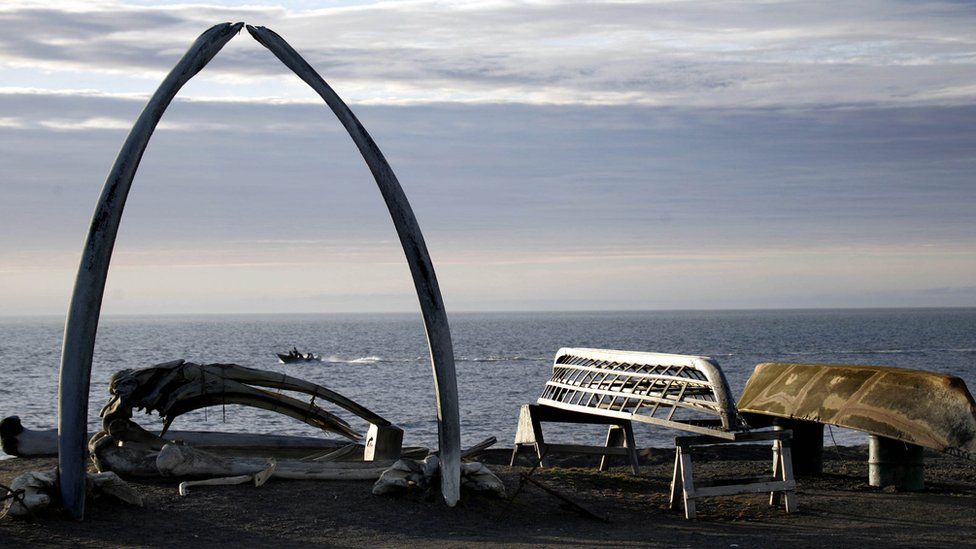The sun sets for the last time over Barrow, Alaska
- Published

On 18 November 2016 at 13:31 local time, the sun set forever on America's northernmost city of Barrow, Alaska.
That is because on Thursday the town officially changed its name to its original indigenous title, Utqiagvik.
The city of about 4,300 people, which sits above the Arctic Circle, experiences more than two months of 24-hour darkness each winter.
Meteorologists predict that the sun will not rise again over the city until the afternoon of 22 January, 2017.
Due to a tilt in the earth's rotation, the sun never rises above the horizon in polar regions during the winter, and never sets there during the summer.
Residents of the city then known as Barrow voted in October to restore its traditional Inupiaq name, Utqiagvik, which means "a place to gather roots" in the local language.
Mayor Bob Harcharek said that the name change "reclaims our beautiful Inupiaq language".
The ordinance was introduced by city council member Qaiyaan Harcharek, son of the mayor, to "promote pride in identity" and "perpetuate healing and growth from the assimilation and oppression from the colonists".
He explained to Alaska Public Media that very few people still speak Inupiaq, and that "our people were severely punished from speaking our traditional language for many years", when missionaries first arrived in the region with the intent of assimilating native peoples.
The Alaska Native Language Center at the University of Alaska estimates that only about 3,000 people speak Inupiaq today.
The name change passed by only six votes, with some residents disagreeing with the cost of changing official references on road signs and municipal documents.
- Published1 December 2016